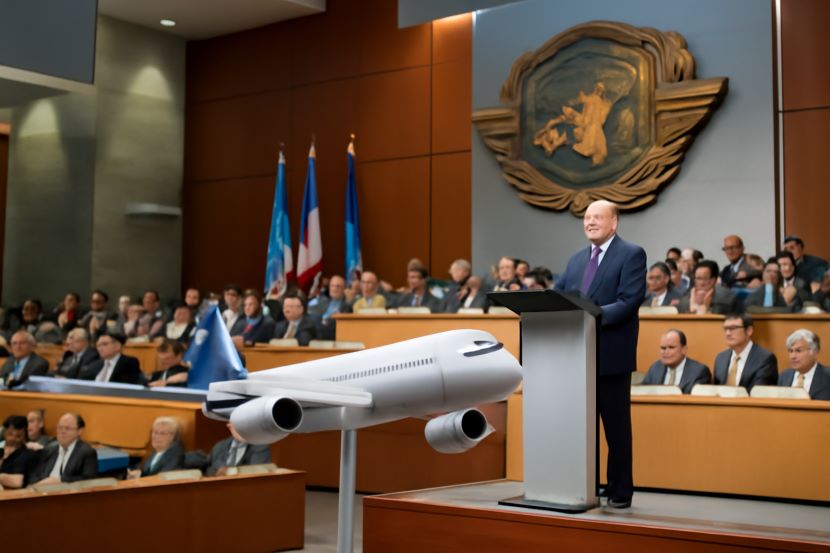ICAO General Assembly 2025 Reaffirms Aviation’s Commitment to Net-Zero by 2050

The 42nd International Civil Aviation Organization (ICAO) General Assembly, held in Montreal in October 2025, made waves with pivotal decisions concerning the future of aviation sustainability. As the global aviation industry faces increasing challenges, the commitment to achieving net-zero carbon emissions by 2050 remains steadfast, with substantial measures outlined to meet this ambitious goal.
Global Consensus on Sustainability Goals
One of the most significant outcomes of this year’s assembly was the reaffirmation of the Long-Term Aspirational Goal (LTAG) for net-zero carbon emissions in international aviation by 2050. This decision follows a landmark agreement during the 2022 ICAO General Assembly, where member states solidified their commitment to sustainable aviation.
Despite a shifting geopolitical climate that has occasionally deprioritized climate policies, the ICAO 2025 Assembly demonstrated unified global support for sustainability in aviation. The assembly emphasized that while aviation is navigating a turbulent world, its flight path towards net-zero emissions remains unaltered.
Progress on Sustainable Aviation Fuels (SAF)
A key area of focus at the assembly was the continued push for the adoption and implementation of Sustainable Aviation Fuels (SAF). The ICAO’s Global Framework for Sustainable Aviation Fuels was endorsed, targeting a 5% reduction in CO2 emissions from international aviation by 2030. This initiative is part of a broader effort to lower the sector’s carbon footprint and move closer to the 2050 net-zero target.
The assembly also welcomed the ICAO Finvest Hub, which aims to accelerate investment in clean technology solutions, particularly in SAF. This platform connects aviation project developers with financiers and government institutions to bridge the capital gap necessary for aviation decarbonization. With SAF seen as a cornerstone in the transition to a more sustainable aviation sector, this initiative marks a significant step toward scaling up production and use of cleaner aviation fuels worldwide.
New Standards for Aircraft Emissions
In addition to SAF initiatives, the assembly introduced new standards for carbon emissions and noise levels for both new and in-production aircraft designs. These enhanced standards aim to reduce the environmental impact of aviation, ensuring that modern aircraft contribute to reducing aviation’s carbon footprint.
Reaffirmation of CORSIA’s Role
A vital component of ICAO’s approach to global aviation decarbonization is the Carbon Offsetting and Reduction Scheme for International Aviation (CORSIA). CORSIA was reaffirmed at the 2025 ICAO Assembly as the world’s first global sectoral market-based mechanism. The scheme has seen increasing participation, with 130 states now engaged, up from 88 in 2021. By offsetting emissions through various projects, CORSIA plays a crucial role in helping the aviation sector manage its environmental impact.
Challenges Ahead: Regional Variations in Policies
Despite these advancements, the global push for sustainability in aviation is far from uniform. Regions around the world are implementing varying levels of commitment to decarbonization, with some regions moving faster than others.
- Europe remains a leader in aviation climate policies, with CORSIA policies likely influencing the EU Emissions Trading System (ETS). These developments could result in more routes being subject to carbon pricing, strengthening Europe’s role in the global sustainability movement.
- Meanwhile, in the United States, policymakers have leaned more heavily on incentives rather than mandates to promote SAF adoption. However, this approach has drawn criticism for its relaxed sustainability criteria, which may limit the environmental benefits of some fuels.
- The Asia-Pacific (APAC) region is also making strides, with SAF policies gaining momentum in countries like Singapore, Australia, and Japan, though the pace of adoption is slower compared to Europe.
These disparities in SAF adoption and carbon policies present a challenge to the global harmonization of sustainability efforts. However, the ICAO Assembly 2025 has emphasized the importance of aligning regional goals to avoid a fragmented approach to aviation decarbonization.
Airports Play a Crucial Role in Decarbonization
The assembly also spotlighted the Airports of Tomorrow initiative, advocating for airports to have access to reliable, renewable, and affordable energy supplies. With the aviation sector moving towards net-zero emissions, airports must be equipped to source renewable energy to sustain efficient operations and ensure they are resilient to climate challenges.
A Global Commitment to Sustainability
In an increasingly fragmented world, the ICAO 2025 Assembly reaffirmed the global aviation community’s commitment to sustainable air travel. By adopting forward-thinking policies, such as SAF integration and stronger aircraft standards, ICAO continues to pave the way for a more sustainable future in aviation.
This global commitment, if followed through with consistent international cooperation, holds the potential to create a greener, more resilient aviation industry, ensuring that travelers can continue to explore the world in a way that respects the planet’s future.
The post ICAO General Assembly 2025 Reaffirms Aviation’s Commitment to Net-Zero by 2050 appeared first on Travel And Tour World.